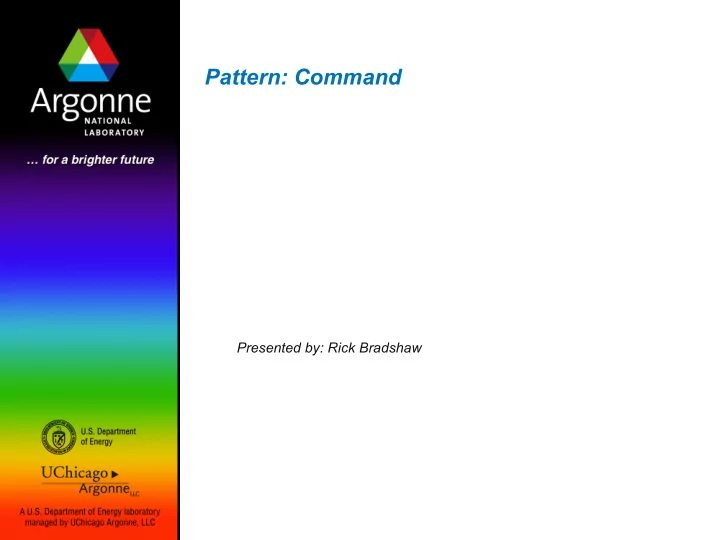

Pattern: Command Presented by: Rick Bradshaw
Behavioral Patterns Command Pattern: Intent Concerned with algorithms and the Encapsulate a request as an assignment of responsibility object, thereby letting you between objects. They describe not parameterize clients with different only the objects or classes but also requests, queue, or log requests, the pattern of communication and support un-doable operations. between them Characterize complex control flow that is difficult to follow at run-time. 2
Command Pattern: Motivation/Applications Motivation: – Used when it is necessary to issue requests to objects without knowing anything about the operation being requested or the receiver of the request. Applications: – Object oriented replacement for “Call-back” functions – specify,queue, and execute requests at different times – Support “undo” – Log changes to be replayed upon system crash – Implement “transactional” systems
Command Pattern: Structure Command: declares an interface for executing a operation ConcreteClass: – Defines a binding between a Receiver and an Action() – Implements Execute by invoking the Action() from Receiver Client: creates a ConcreteCommand and sets the Receiver Invoker: asks the command to carry out the request Receiver: knows how to perform an Action() – Any class can act as a Receiver
Command Pattern: Consequences Decouples invoker from the object that performs the operation Can assemble multiple Commands into composite commands, like Macros/ Transactions Easily change Commands without changing existing classes. If you are going to support “undo” you will need to possibly store extra state information in the ConcreteCommand object to ensure no loss or alteration of behavior
Command Pattern: Sample Code
Command Pattern: Sample Code – Main
Recommend
More recommend